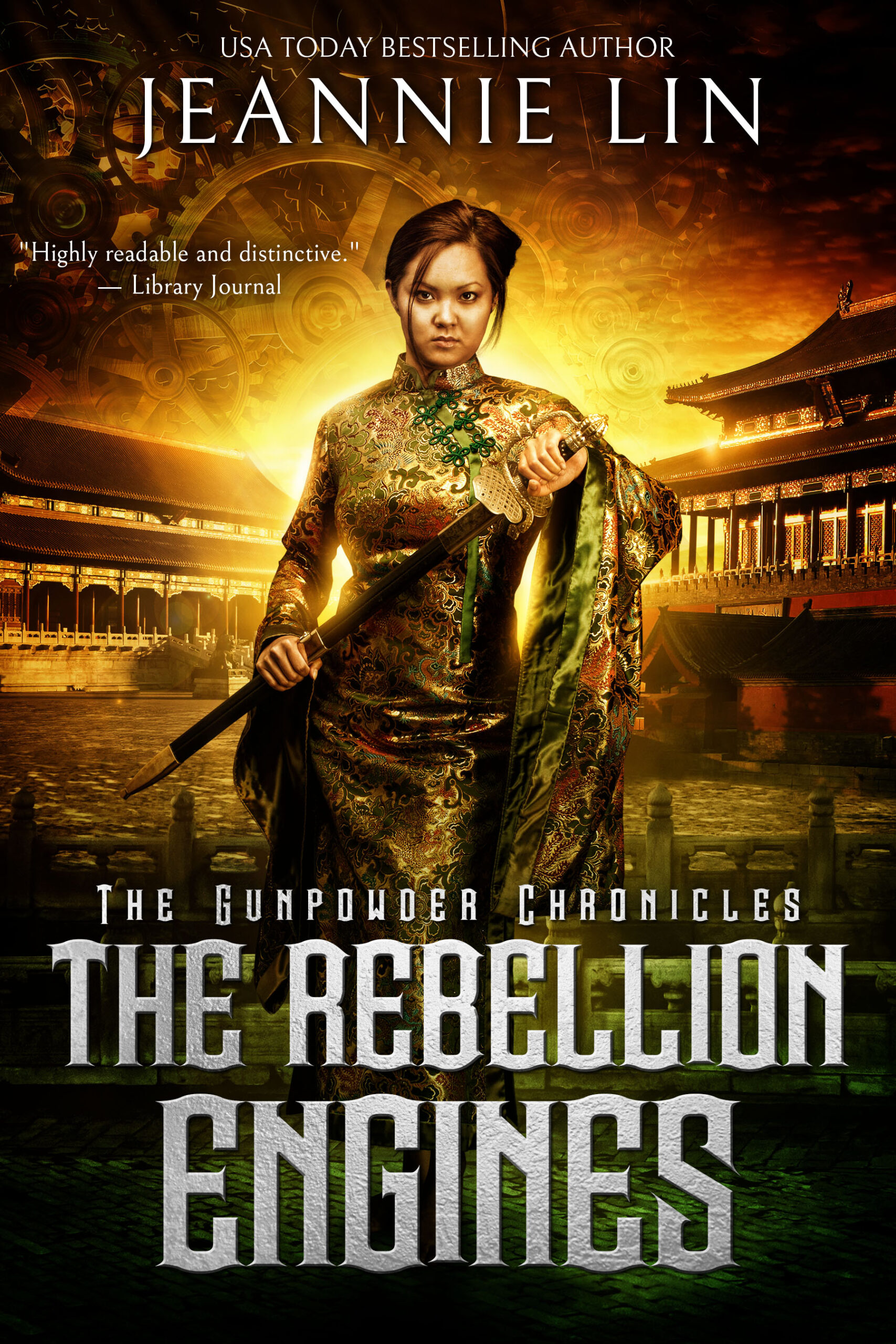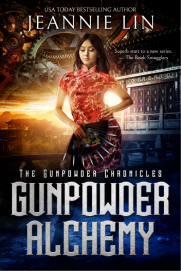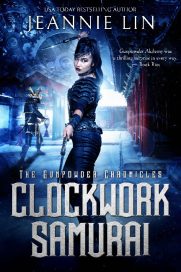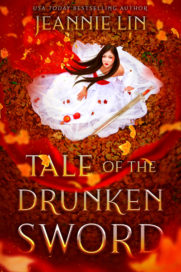I was asked to teach an online workshop for RWA-PRO on how to make book trailers, which made me think about book trailers and what makes them effective or not. I wanted to have a clear line of sight on the subject before I started advocating that authors spend hours of their time or too much money on producing trailers.
I’ve heard a lot of opinions from writers (but not purely readers, per se) about book trailers. Most have said that they’re cheap, cheesy-looking and ineffective. A book trailer would never make them want to buy a book. They rely on things like the blurb and cover, and reviews or word of mouth.
Years ago, when I first started seeing book trailers appear on YouTube, I was intrigued. Admittedly, there were a lot of rough ones out there with random images and text set to music. They had the production quality of a high school Powerpoint presentation. But when looking at a medium, it’s important to see not only what people are doing, but what people could do. There was potential there. A lot of potential. My mind started spinning.
So I’m going to come out and speak about what trailers CAN do.
We are now marketing to an increasingly visual generation. A generation used to watching videos, not only on TV, but on laptops and ipods and phones. This means that visual media will soon be at consumers’ fingertips all the time. The synchronization of images and music evokes an emotional response in us.
It’s not learned behavior. Music and sound naturally causes your heart to beat faster. We physiological respond to it. That’s why muzak is used to calm people down in elevators. That’s why drums are used in battle to gear people up.
Let’s look at the evolution of ads and music videos. At the beginning, advertisements were trying to be informative. If you look at old commercials for soap or Hershey’s chocolate or cars, they contained a lot of text explaining what the product did and why you’d want to buy it. Eventually, advertisers realized that the power of a magazine ad wasn’t to replace the verbal spiel of a door to door salesman, but to present an exaggerated image of the product and create an aura and specific emotional message. If you want to sell a guy a car, you don’t show the car and regurgitate the owner’s manual. You take a glossy photo of it in dramatic lighting with a gorgeous woman sitting on the hood. The ads aren’t selling a vehicle with four tires and a steering wheel. They’re selling image and sex appeal. Extreme example, but you get my meaning. 🙂
Music videos. Early music videos showed the bands usually in a concert setting, playing their instruments and singing. Again, video producers quickly realized that the power of music video wasn’t to recreate the concert setting on the television screen. You get none of the energy and fandom of a concert that way. Instead, music videos have become mini movie productions. They often tell a story or present some wonderful eye candy meant to evoke an emotional response.
Many authors are trying book trailers out, but most admit they don’t know if it really helps increase sales. Some companies can charge $50 on the low end for a trailer, hundreds of dollars on the high end. Big bestsellers have book trailers that use actors with costumes and stage sets. Some feature digital animation and effects. I’ve heard the bill can be as high as a thousand dollars or more. EEK! There goes most of our advances!
But is all of this useful?
I think it can be. I think there are still only a few trailers that are hitting the mark. Even the ones that look really good are sometimes too much buck and not enough bang.
The biggest way trailers miss the mark is by using the video merely to present a text heavy blurb and cover along with some pictures of the hero, heroine, and setting. It’s not that this can’t have some use — but like magazine ads and music videos, authors were trying to transfer the old tools of advertising – the cover and book summary – directly to video without using the true power of the medium.
The second way that many very impressive trailers miss the mark for me is by their length. Think of how long a television commercial is. Think of how long a movie trailer is. Not a lot of people without vested interest in the book are going to sit through a two minute trailer. Even a one minute trailer (which I have) is pushing it.
If you’re trying to judge the effectiveness of book trailers with a direct tie in to book sales, then they may fall short. There is no way to measure that right away. People are not likely to see a book trailer and run and buy right away, much like people don’t see a Coke commercial and immediately run out and grab one. The commercial is there to create an image for Coca-cola, tie the product with an emotional message, and foster brand recognition. That’s the same goals you want to aim for with book trailers.
A truly effective book trailer should align itself with the rest of the book’s marketing message. It should not just “look cool”. It should enhance the current marketing plan. It should bring additional exposure and buy-in to the product.
That being said, book trailers are not necessarily cost effective for all authors, depending on their marketing plan. Superromance author, Liz Talley, had a great point in that she doesn’t see the use for book trailers in marketing her books right now because she writes contemporary romance. Her stories don’t lend themselves to these huge theatrical book trailers and she can get more mileage out of interacting with readers on blogs and forums.
That’s not to say book trailers can’t be very effective for contemporary stories. But the point is, Liz identified her market and her marketing plan and made a decision that was aligned with that. An ineffective trailer is a waste of time and money. Worst case, it may turn readers off.
To end this reflection, I’m posting two book trailers I’ve made so I can point the workshop participants here. One if for Inez Kelley’s Salome at Sunrise and one is for my upcoming release, Butterfly Swords. Both of these books have very strong visual elements, so a book trailer works very well in deepening that experience. The trailer is able to present the book in a way that a static web page couldn’t.
These are both low budget efforts, costing about $50 to produce. However, they were quite time consuming!! That’s why when people have asked me if they could pay me to do a trailer, I’ve always declined. I only do them out of love for the story and geekiness. But there is a method behind my madness and I hope I have something to offer the RWA-PRO workshop participants this week!
So don’t everyone rush out and make a book trailer. Think carefully about what you want to achieve first.












